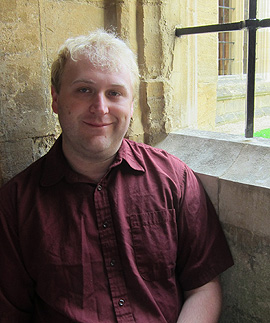Learning from Authoritative Security Experiment Results

Invited Speaker: Seth Zenz

Seth Zenz is a Dicke Fellow in the Princeton Physics Department, working on the Compact Muon Solenoid (CMS) detector at the Large Hadron Collider (LHC) in Geneva, Switzerland. The LHC has now started to answer one of the great outstanding problems in particle physics: what is the origin of the masses of the W and Z bosons and the tremendous differences between the electromagnetic and weak forces? The Standard Model (SM) of particle physics explains this via the Higgs Mechanism, which predicts a particle called the Higgs Boson. In 2012, the CMS experiment observed a particle, with a mass of about 125 GeV/c2, that decays to pairs of photons or Z bosons at approximately the rate predicted. But is it really the SM Higgs Boson?
To answer this question, Seth is major contributor to the CMS search for Higgs decays into pairs of bottom quarks, focusing on Higgs production in association with a W boson. The latest results of this search, the most sensitive yet, have come tantalizingly close to providing evidence for this decay, but a definitive discovery will require new techniques and new data. To this end, he currently focuses on the development of the search in the presence of very high collision rates, working toward planned upgrades of the LHC and CMS. These studies make heavy use of the internal structure of hadronic jets, for example by optimizing the rejection of additional collisions, identifying displaced decay vertices of bottom-containing particles, and potentially using the substructure of merged jets when the Higgs has very high momentum.
Precision tracking of charged particles is critical to understanding these jet properties within the Higgs analysis. Seth works on the operation and maintenance of the CMS Pixel Detector, a high-precision silicon tracking device at the core of CMS, as well as measurements and modeling of the radiation damage that limits the Pixels' longevity in the intense LHC environment. He brings to bear his Ph.D. thesis results on jet properties measured with charged particle tracks and graduate work at UC Berkeley on the initial testing, calibration, and operation of the ATLAS experiment Pixel Detector.
Seth engages with the public about his work, and the broader enterprise of experimental particle physics through the international Quantum Diaries blog; as a host, organizer, and contributor to CERN’s Google+ Hangouts; and on Twitter.